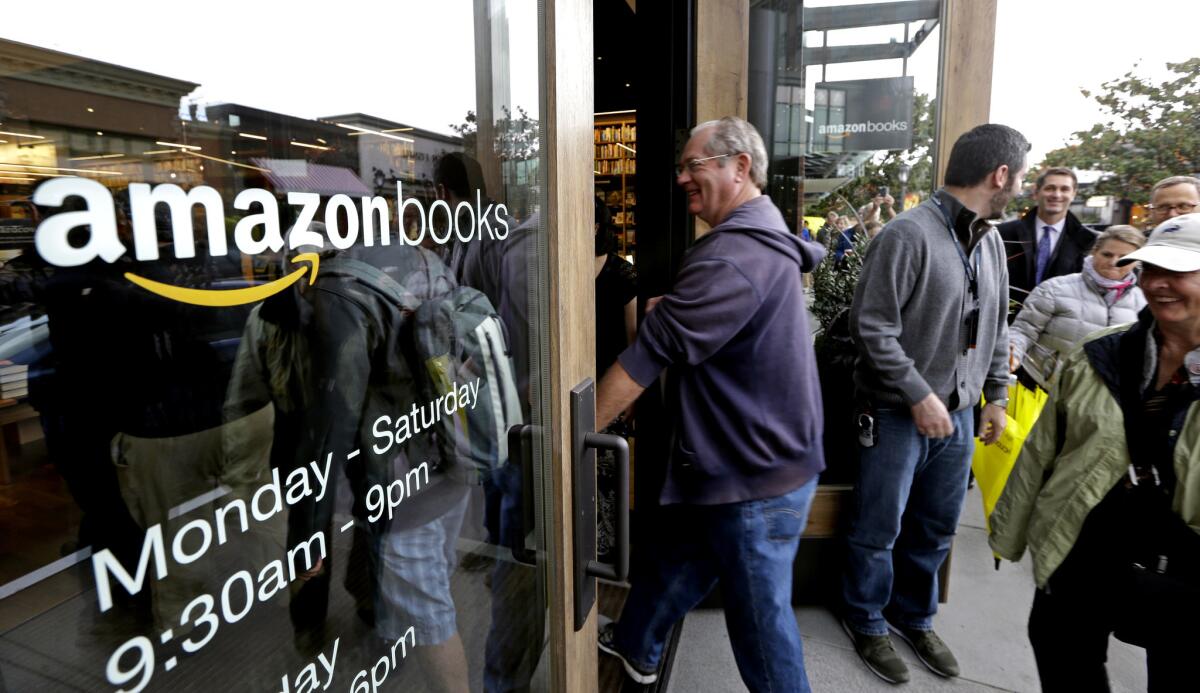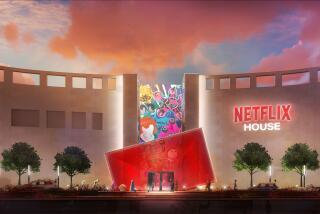Bad news for the Strand? Amazon is opening a brick-and-mortar bookstore in Manhattan

Amazon, the online retail giant, is set to open a 4,000-square-foot brick-and-mortar bookstore smack in the middle of Manhattan this spring.
Located in the Time Warner Center, Amazon joins brands like Swarovski, H&M and Whole Foods occupying storefronts in the Columbus Center shopping mall.
Although the company is known for disrupting traditional brick-and-mortar book business after launching its online store in 1994, this is not its first foray into the physical retail space: Amazon already has bookstores in Oregon, Washington and California, and plans to open three more in flagship locations in New Jersey, Massachusetts and Illinois.
But why would Amazon track backward from the digital to the analogue? A report from the nonprofit Institute of Local Self-Reliance estimates that Amazon pockets one in every two dollars that Americans spend online. And Amazon has a huge share of America’s book sales: The company alone accounted for 41% of new book, and 67% of e-book-sales in a single month in 2014, according to the Codex group. The shift to online book shopping saw the demise of scores of local, independent, corporate and national bookstores.
Amazon rebuilding in their image may sound like an about-face, but could actually be an opportunity to enter a different retail market.
“Ninety-one percent of retail still happens in physical stores,” said Brendan Witcher, an analyst at research group Forrester. “It wouldn’t surprise me if they started exposing their own electronics.”
“My expectation is Amazon will take all the best of online and apply it to the physical store,” he said.
Mom and pop bookshops might shrink from slick new technology, but Amazon is comfortable in the tech sector, and “digital is how we do things now.”
So although a glimpse of a catchy window display might capture the occasional book shopper, he expects “Amazon to use these centers as places to experience the Amazon brand,” including products like the Kindle and the Echo.
Oren Teicher, CEO of the American Bookseller Assn., put a slightly finer point on it. “It’s a way of getting people into the Amazon system,” he said, “And then sell them everything else under the sun.”
“Amazon’s used the books business as a loss leader,” said Teicher. “It’s all a means to attract people to buy other stuff.”
Books are unique in that publishers “print the suggested retail price on the product. It creates the maximum that you can charge, and then Amazon can deeply discount that,” Teicher said.
“When you buy that flat screen, the presumption is that it’s cheap, because the books are cheap,” he said. “The book business is the way that Amazon attempts to demonstrate value…. They didn’t open up a flat screen television store.”
Amazon began as an online bookseller before branching out into electronics, groceries and even TV. They may be adopting the same model in their physical outposts, using books as a testing ground.
“Books make sense because you go with what you’re comfortable with,” said Witcher, but “we’re speaking about a long-term strategy here.”
ALSO
Faces to watch: Remember these authors and their books
Junot Diaz has postponed his L.A. reading for a very, very good reason
John Scalzi’s 10-point plan for getting creative work done in the time of Trump
More to Read
Sign up for our Book Club newsletter
Get the latest news, events and more from the Los Angeles Times Book Club, and help us get L.A. reading and talking.
You may occasionally receive promotional content from the Los Angeles Times.









